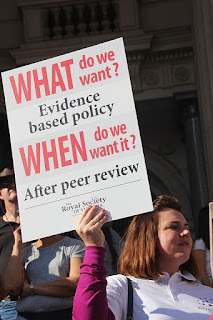Barb Ruggeri, recipient of a 2018 WHSLA CE Award, gives us a peek at her experience at MLA.
=========================
MLA 2018: Adapting, Transforming, Leading – Atlanta, Georgia
My trip to MLA was off to a great start with attendance of two continuing education courses.
My first CE, Dissemination in Action, gave me hands-on pointers on how to use social media to promote research. Taught by Karen Gutzman, Impact and Evaluation Librarian, and Patricia L. Smith, Impact and Dissemination Librarian, Galter Health Sciences Library, Feinberg School of Medicine, Northwestern University, Chicago, IL. Increasingly, researchers who receive funding must demonstrate their plans of dissemination of the results to benefit society. “Applicants must address plans for collection and dissemination of useful products of the research, including approaches, technologies and tools to the relevant research and user communities.” NIH Request for Proposal Coordination Center for the Models of Infectious Disease Agent Study (MIDAS) Program.
A basic dissemination plan might include:
- Determine the research findings or products you want to promote.
- What do you want to achieve? You need to have a goal
- Who is your target audience(s)? The public? People with condition? Other researchers? Other providers? Funders?
- What tool, resource, or format do you want to use?
- Do you have content, or does it need to be generated? Remember visuals are more impactful.
My second CE, Innovations in Nursing Information Literacy: New Technologies, Approaches, and Ideas, was taught by Jessica Sender, Librarian, College of Nursing, Michigan State University–East Lansing. We looked at the ACRL Framework for Information Literacy http://www.ala.org/acrl/standards/ilframework
- Authority Is Constructed and Contextual
- Information Creation as a Process
- Information Has Value
- Research as Inquiry
- Scholarship as Conversation
- Searching as Strategic Exploration
Jessica employed a strategy known as Take Five with the class. We took 3 minutes to work on questions, then spent two minutes sharing it with one other person in class. In this case, we looked at the ACL framework and chose three areas that would match up with our nursing literacy goals. The goals often depend on the audience: First year nursing students vs nurse practitioner students vs graduate nurses in the hospital.
On Sunday, MLA got underway with a great keynote address by William Powers, a former Washington Post writer who now works at the MIT Media Lab. "Reviving the Human: Libraries in the Age of AI” wove Powers life story with great history lessons about the introduction of new technology and human reaction to it. One of the most profound statements for me was his quote of Simone Weil “Attention is the rarest and purest form of generosity.” He stated that attention is our most powerful tool, and who and what we attend to indicates its importance in our life. Our obsession with our smartphones and social media is not a new one in history. It repeats a cycle of obsession followed a period when there is an adjustment by humans and the technology loosens its grip on us. I plan to read his book “Hamlet’s Blackberry” to learn more about how to live with technology. He is a senior advisor to Cortico “a non-profit organization that helps journalists tell stories that are more reflective of people’s lives on the ground in communities across the US, whether they’re red counties or blue cities.”
On Monday we received the Janet Doe lecture from : Elaine R. Martin: Elaine R. Martin, Director, Library Services, Countway Library, Harvard University Medical School, Boston, MA. Her talk “Social Justice and the Medical Librarian” was an inspiring message to address injustice, improve the diversity of backgrounds medical librarians, to promote engagement with social justice concerns and to promote hidden voices through acquisitions and collections.
On Tuesday we were treated to the presidential address of Beverly Murphy, AHIP, FMLA, 2018/19. Beverly is the first African American president of MLA. Her address was very warm and engaging – she walked up to the podium to the sound of “You are the Sunshine of My Life”, she sat down next to a heart shaped balloon which read “Open Hearts, Open Minds”. She said where the heart goes, the mind follows. She said regardless of our backgrounds “we are all information professionals with the common goal to be the most visible, valued and trusted information experts.”
While the conference continued through Wednesday, I returned to Milwaukee. Highlights included celebrating the 25th anniversary of Doody’s Review Service with a group of librarians and vendors, talking to librarians about their research at poster sessions and presentations and learning about NLM’s strategic plan: https://www.nlm.nih.gov/pubs/plan/lrp17/NLM_StrategicReport2017_2027.html.
Thank you so much to WHSLA for the travel stipend of $500, it was greatly appreciates and I hope to bring what I have learned to help WHSLA and its members adapt, transform and lead!
Barb Ruggeri













